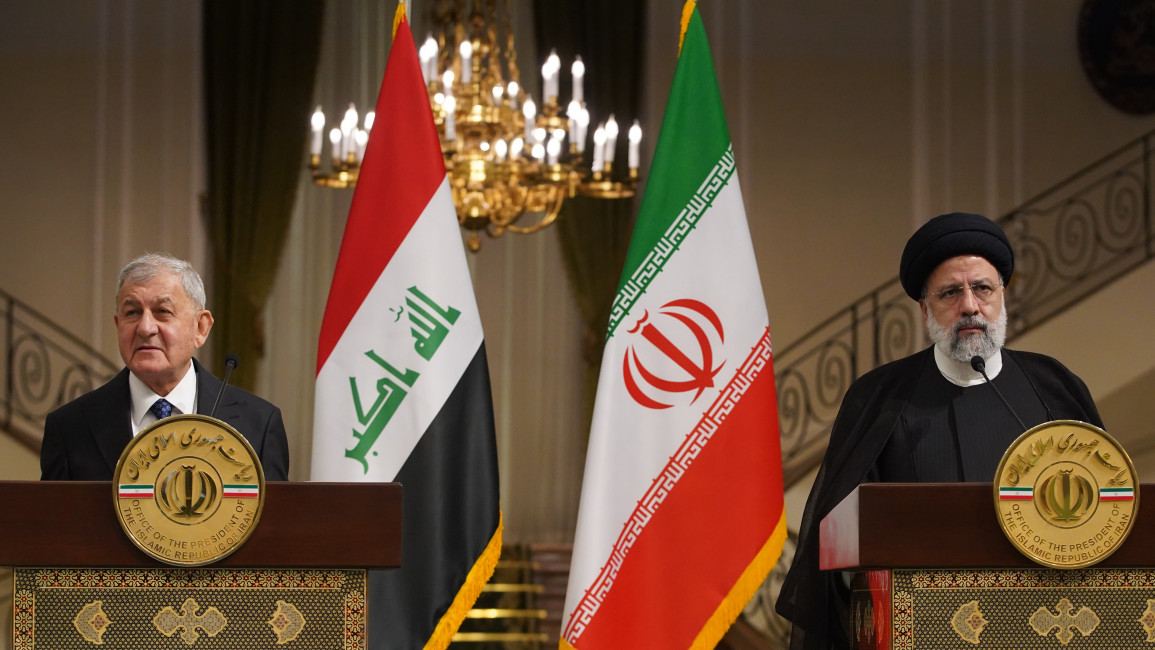Iranian supreme leader's remarks on US presence in Iraq provokes debate
Recent statements by Iran's Supreme leader Ayatollah Ali Khamenei in regard to the ongoing presence of US forces in Iraq provoked several reactions in Iraq, with several commentators criticising Khamenei's remarks as a form of "direct interference" in the country's internal affairs.
The United States is "an unreliable friend" and Iraq should not allow any US troops on its territory, Khamenei told visiting Iraqi President Abdul Latif Rashid late in April.
"The presence of even one American in Iraq is too much," state media quoted Khamenei as saying.
The United States has some 2,500 troops in Iraq to advise and assist local troops in combating Islamic State, which in 2014 seized territory in the country.
Iraqi President Rashid, after his meeting with Khamenei, underscored the importance of Iraq-Iran relations but did not respond to comments on the presence of US troops in Iraq.
Several Iraqis rejected Khamenei's speech and considered it as "disrespecting" Iraq's sovereignty and interference in the country's internal affairs, while others approved of the stance and reasserted their calls for US troops to leave.
Iraq's parliament in March 2018 asked the Iraqi government to set a timeline for the withdrawal of foreign troops based in the country. Parliament decisions are not compulsory to the Iraqi government.
A well-informed source from the Iraqi ruling elites, told The New Arab on condition of anonymity that the Iraqi PM Mohammed Shia al-Sudani currently "is not intending to ask the US troops to leave the country, as some of the Shia, all the Kurdish and Sunni political parties prefer the US forces to remain."
Othman Gulpi, a Kurdish political analyst, told TNA that Khamenei's words were intended to deliver some messages to the US and its friends in Iraq that Iran has not abandoned its previous stance of refusing any US military presence in Iraq.
"Another message is that Tehran's political influence over Iraq will not weaken, rather Iran's hegemony over Iraq is triumphing despite the killing of Qassim Suleimani. Therefore, Iran wants to say: internal Iraqi issues will not be settled unless Tehran’s views are put into consideration," Gulpi said.
He also indicated that foreign interference by Iran and the US has "very negative effects on Iraq and puts its sovereignty questionable."
Before the formation of Sudani's cabinet in October, the US bases in Iraq as well as the convoys of the US and other coalition members were subject to daily attacks via drones and Katyusha missiles by pro-Iran militias known as the "Islamic resistance axis".
However, Iraq recently witnessed an unprecedented period of calm after the Iran-backed militias refrained from attacking the US forces in the country in the last six months.
"Iraq has the right to protect its sovereignty for whatever reason. Since the fall of the Ba'ath regime in 2003, Iraq's sovereignty has been violated by several countries, especially the neighbouring countries," Waleed Mohammed, a Kurdish political observer from Duhok province, told TNA.
"These violations have direct negative impacts on the Iraqi people. Iraq must protect its territory and prevent violations through diplomacy, and dialogue. If these countries do not stop their interference, the Iraqi government must seek to take measures against them at the UN Security Council," Mohammed added.



